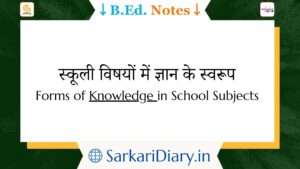
Forms of knowledge:
There are numerous ways to categorize and define different forms of knowledge. Here are a few common classifications:
Explicit vs. Implicit knowledge:
-
- Explicit knowledge is clearly articulated and easily communicated, such as facts, figures, and definitions. It’s the kind of knowledge found in textbooks and lectures.
- Implicit knowledge is more personal and subjective, often based on experience, intuition, and tacit understanding. It’s not easily expressed in words and may be difficult to transfer to others.
Declarative vs. Procedural knowledge:
-
- Declarative knowledge is knowledge of “what”, referring to facts, concepts, and information. It answers questions like “what is the capital of France?” or “what is photosynthesis?”.
- Procedural knowledge is knowledge of “how”, focusing on skills, procedures, and methods. It answers questions like “how to solve a quadratic equation?” or “how to play the piano?”.
A Priori vs. A Posteriori knowledge:
-
- A Priori knowledge is independent of experience and considered self-evident, such as logical principles and mathematical axioms.
- A Posteriori knowledge is acquired through experience and observation, such as scientific facts and historical events.
Characterization of knowledge in various school subjects:
Each school subject emphasizes and utilizes different forms of knowledge in unique ways. Here are some examples:
- Mathematics: Focuses heavily on explicit knowledge of formulas, rules, and algorithms. Procedural knowledge is crucial for applying these rules to solve problems. A Priori knowledge plays a role in foundational axioms and logic.
- Science: Employs both explicit and implicit knowledge. Explicit knowledge includes scientific facts, theories, and terminology. Implicit knowledge involves skills like observation, experimentation, and critical thinking. A Posteriori knowledge dominates, as scientific understanding is built upon empirical evidence.
- History: Primarily relies on explicit knowledge of historical events, figures, and dates. However, critical analysis and interpretation require implicit knowledge and understanding of historical context. A Posteriori knowledge is fundamental, as history is based on past events and their interpretations.
- Literature: Engages with both explicit and implicit knowledge. Explicit knowledge includes understanding literary devices, plot elements, and authorial intent. Implicit knowledge involves interpreting symbolism, analyzing themes, and connecting literature to personal experiences. Both A Posteriori and A Priori knowledge can be relevant, as literature reflects historical and cultural contexts while exploring universal themes and human experiences.
- Art and Music: Emphasize implicit knowledge and procedural knowledge. Skills like creative expression, composition, and performance are paramount. Explicit knowledge is also present in understanding artistic techniques and musical theory. A Priori knowledge may be less relevant, as artistic expression often transcends established rules and embraces subjective interpretations.
[catlist name=”bed-deled”]
Additional points:
- The specific forms of knowledge emphasized in each subject may vary depending on the curriculum, teaching methods, and learning goals.
- Interconnectedness and integration of different forms of knowledge are essential for deeper understanding and meaningful learning.
- Promoting critical thinking, questioning, and analysis encourages students to move beyond simply acquiring knowledge and develop the ability to apply and utilize it effectively.
Understanding the different forms of knowledge and their characterization in various school subjects allows educators to develop effective teaching strategies that cater to diverse learning styles and promote meaningful learning experiences. By fostering a holistic approach to knowledge acquisition, educators can empower students to become critical thinkers, problem solvers, and lifelong learners.